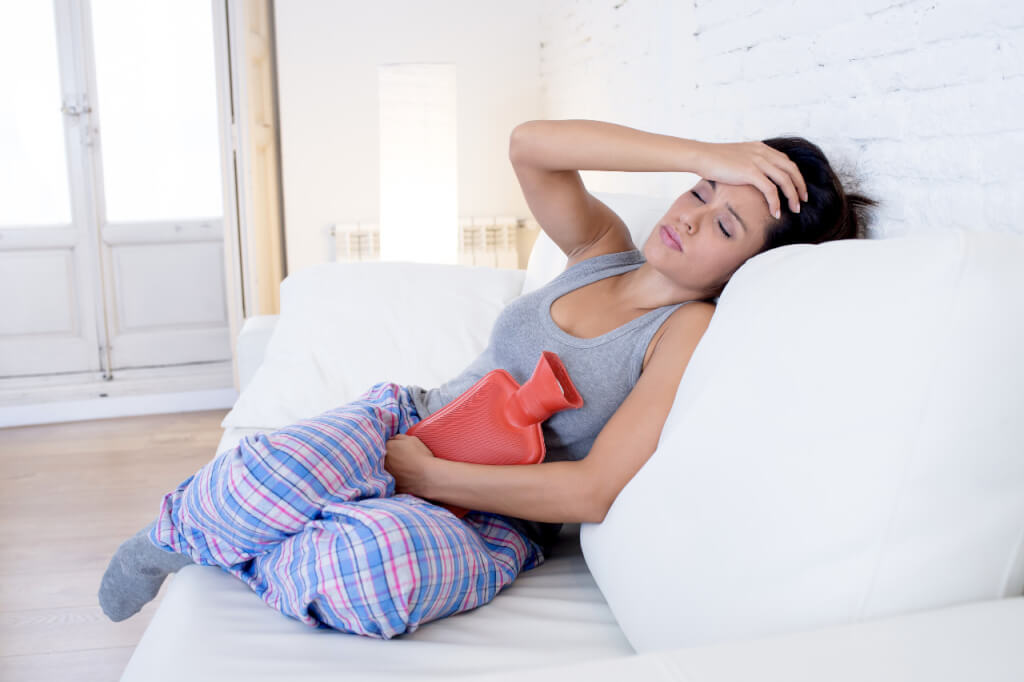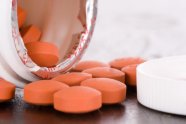Advertising Disclosure
Period cramp remedies you can use to treat your pain at home

Women everywhere understand that period cramps are the worst part of the menstrual cycle. About 80% of women have experienced this pain at some stage in their life. With period cramps being a monthly struggle for many people, the battle to find the best cure has been on for years. While some prefer to pop an over-the-counter pain killer, most of us have tried at least one natural at-home alternative. And there are plenty of those, from the legitimate to the bogus. So with so many different period cramp remedies out there, it can be difficult to tell which ones to bother with. We’ll tell you the best at-home period cramp remedies for you to try, that actually work.
HERBAL TEA
Drinking herbal tea can help, as registered dietician nutritionist Sonya Angelone believes certain teas may help relieve menstrual cramps. The most common herbal teas recommended for menstrual cramp relief are peppermint and especially chamomile. These teas have anti-inflammatory properties that inhibit prostaglandins and boosts the menstrual flow to ease period symptoms.
ESSENTIAL OIL MASSAGE
According to The Journal of Obstetrics and Gynaecology Research, massaging your skin with essential oils can alleviate period cramps. Studies show that massages with essential oils reduced period Pain significantly more than massages without essential oils. Helpful oils include lavender, clove and clary sage. Essential oils are very potent and can irritate the skin when applied directly, make sure to use a carrier oil to dilute the essential oil. Carrier oils will not affect the essential oil’s therapeutic properties.
DIETARY CHANGES
During their menstrual cycle, women often crave all types of junk food. This junk food can be contributing to your period pain. Avoiding food that causes bloating reduces tension and eases cramps. Foods to avoid include: fatty foods, alcohol, carbonated beverages, caffeine and salty food. Foods rich in trans-fatty acids can cause inflammation and menstrual pain. Replace your junk food cravings with anti-inflammatory choices like blueberries, cherries, tomatoes and squash. Calcium-rich beans, almonds, and dark leafy greens also have compounds that fight inflammation.
EXERCISE/ORGASM
Not only does having an orgasm and exercising release endorphins that improve your mood, these endorphins also have a pain-relieving affect. Because of the pain, intense exercise may not be possible. Yoga is a gentler exercise that is recommended to manage cramps. A study found that participants who took yoga classes twice a week for 12 weeks experienced a reduction in period pain.
When it comes to vaginal orgasms, they trigger the release of neurotransmitters. These neurotransmitters include endorphins which decrease pain. A study by author and sexologist Dr. Beverly Whipple discovered that vaginal self-stimulation significantly increased women’s threshold for pain.
APPLY HEAT
Applying heat to areas that are cramping has been one of the most popular period cramp remedies for years, and that’s because it actually works. A heating pad can be purchased online, but if you want to use something you have at home Dr. Kirtly Jones, from Obstetrics and Gynecology at University of Utah Health, recommends a hot water bottle.
“A hot but not too hot water bottle on your lower abdomen can be soothing or on your back if you primarily feel the cramps in your back,” she said. “This was used by our mothers and probably their mothers. It doesn’t really heat up your uterus but thermally stimulating the skin can distract other nerve pathways involving pain.”
Hot towels and hot socks filled with uncooked rice are alternatives to a hot water bottle. Women can also get into a hot bath tub to soothe cramps.
SEE A DOCTOR IF…
Although a majority of women are no stranger to menstrual pain, 5-10% of women say their period cramps are so painful it disrupts their life. Female pain is regularly dismissed and untreated, so it is important to know when menstrual pain is no longer normal and needs to be checked out. If over the counter medicine, and at-home treatments aren’t helping, you may want to see a doctor as there could be an underlying medical issue. Make sure to also see a healthcare professional if your cramps last more than a couple days, or if your cramps are suddenly/unusually severe. A doctor will prescribe you medication, sometimes birth control, to tame your cramps and keep the pain under control.





